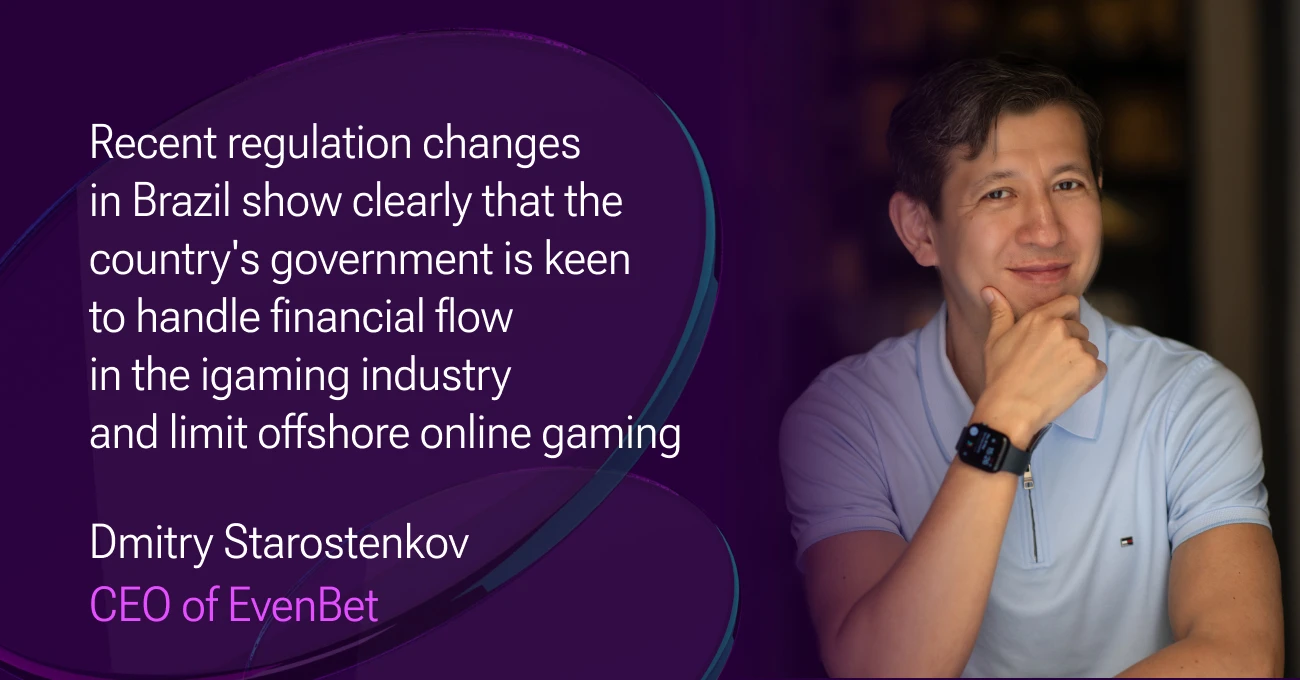Zona de Azar Brasil – Brazil’s ban on Crypto Payments: The pros and Cons
 Brasil.- October 9, 2024 www.zonadeazar.com In December 2023, Brazilian President Luiz Inacio Lula da Silva approved Bill 3626 – known as the “Betting Bill of Law” – which sought to implement a regulatory framework for sports betting in the country.
Brasil.- October 9, 2024 www.zonadeazar.com In December 2023, Brazilian President Luiz Inacio Lula da Silva approved Bill 3626 – known as the “Betting Bill of Law” – which sought to implement a regulatory framework for sports betting in the country.
Brazil’s position as a top ten gambling jurisdiction has sparked global interest in the upcoming market launch. A recent report by the International Betting Integrity Association (IBIA) forecasts that the regulated Brazilian igaming market could generate $34 billion in sports betting turnover by 2028. Despite the $5.5 million license fee and an extensive list of regulatory hoops to jump through, over 100 operators have applied for a gambling license.
Final regulations reveal ban on cash and cryptocurrency
Details of the new regulatory framework are mapped out in a set of ordinances by the Secretariat of Prizes and Betting (SPA). Released in four stages over the last few months, these ordinances include technical requirements, anti-money laundering policies, online games, prohibited payments, compliance provisions, security measures, industry contributions, responsible gaming and more.
The SPA has now rolled out the framework in its entirety, with the highly anticipated final stage released in July. But while the four-part framework is thorough, the rules on payments – detailed in Normative Ordinance No 615 – have raised concerns for the 113 operators opting for a licence.
The rules state that operators are prohibited from accepting payments in the form of credit cards, cash, cryptocurrency (crypto), cheques, or payment slips. Instead, payments are facilitated directly between the operator and the bettor via electronic transfer.
In special circumstances – such as a player winning a prize – institutions authorized by the Central Bank of Brazil can complete transactions on behalf of the operator to ensure the payout is completed within the allotted 120-minute window.
Crypto already a dominant payment method in Brazil
A recent Hibou study revealed that around 68% of Brazilians gamble, and the country ranks within the top ten largest gambling markets globally. Until now, bettors looking to engage in online gambling have only been able to do so at internationally regulated, “offshore” websites.
Offering peer-to-peer transactions without the need for verification from a local authority, cryptocurrencies like Bitcoin are popular in jurisdictions without a locally regulated igaming market.
Dmitry Starostenkov, chief executive officer at EvenBet Gaming, believes that the ban on cryptocurrency demonstrates the government’s commitment to ushering in a new era of safer online betting in Brazil.
“Crypto transactions, though relatively traceable, offer less control than classic fiat currency payments as they don’t require payment processing by any local institution (a bank or a regulated digital wallet).
“Brazil doesn’t have an immaculate reputation when discussing fraud, money laundering, and financial crime. Recent regulation changes in Brazil show clearly that the country’s government is keen to handle financial flow in the igaming industry and limit offshore online gaming.”
EvenBet Gaming already has a strong presence in both South and Latin America, having rolled out its award-winning poker platform in Colombia and partnering with local operators like FullReto and BetPlay to integrate its games onto their platforms. As a leading software solution provider, it has also solidified its South American position through partnerships with operators in Peru and Argentina.
The company recognizes its recent growth in Colombia and Peru as a leading contributor to the 37% growth in Q1 revenues. Hoping to continue its South American success, EvenBet Gaming has expressed interest in expanding into the upcoming Brazilian igaming market. However, with crypto-integrated online poker rooms constituting a quarter of its software solutions, the supplier must also navigate the benefits and drawbacks of the SPA’s ban on cryptocurrency payments.
The pros and cons of a crypto ban

Though a percentage of EvenBet Gaming’s profits result from its crypto poker solutions, the chief executive officer also quotes the benefits that arise from prohibiting not only cryptocurrency payments but also cash, credit cards, cheques, and payment slips.
“It creates very healthy competition between the payment gateway suppliers as long as the speculations about the payment system restriction to a few specific providers prove to be false,” says Starostenkov. “In the situation where only digital transactions are allowed, the advantage goes to the provider who can show the best record of chargebacks and failed transactions while staying affordable.”
The decision is something of a catch-22. In an attempt to limit financial crime and money laundering risks at licensed betting sites, placing a ban on cryptocurrency payments may turn players away from locally regulated operators and push them instead towards offshore, crypto-supported websites.
“For the regulators, it is a complex issue of balancing potential business growth with criminal risks and black-market gambling,” explains Starostenkov, “The balance can be achieved by other means: enforcing KYC practices, responsible gaming measures, and AML checks, for example.”
If used by a licensed and regulated operator, cryptocurrency can be an effective tool for leveraging fast and secure payments. “When the operator uses a reliable crypto processing gateway, the transaction is instant. There are fewer risks of chargeback fraud or blocked withdrawals. These benefits have made crypto the fastest-growing payment method in Southeast and South Asia, and they could make a difference in Brazil.”
However, Starostenkov acknowledges that, for a market as young as Brazil’s, banning crypto outright is “purely easier and faster” than implementing the strict privacy measures needed to regulate payments to and from a betting site.
Cash ban will impact both operators and unbanked Brazilians
The payment stipulations described in Normative Ordinance 615 are also problematic for licensed operators that depend on cash payments in a jurisdiction where legitimate digital transactions are often intercepted.
Starostenkov explains, “A significant share of operators in Brazil and South America have been relying on cash deposits and withdrawals via authorised agents and cash points.
“This system is trusted more by players in some countries than frequently blocked digital transactions,” he continues. “The new measures may lead players who are used to paying with Bitcoin or cash to choose the black market or offshore websites.”
Almost 10% of the Brazilian population does not have a bank account, meaning cash remains a prominent way to pay. Regulated by the Brazilian Federation of Banks, Boleto Bancário, known simply as Boleto, is a cash-based payment method exclusive to Brazil and one of the only methods available for those without a bank account. Boleto is one form of payment that will no longer be accepted under the new igaming regulations, along with cryptocurrency, cheques, and credit cards.
Will crypto bans be a rising trend?
When the regulated igaming market launches in January 2025, Brazil’s gambling landscape will change dramatically. However, while the country is leaning into a cash and crypto-less market, Starostenkov isn’t so sure that other jurisdictions will follow suit.
“I don’t believe mature markets that have already introduced meticulous KYC checks would be interested in banning crypto payments,” he claims, “In Europe, for example, to use crypto in an online casino, one must pass strict identity verification checks twice, and a financial assessment is also required in some countries.
“Many regulators realise that banning fast and secure payment and withdrawal methods may lead a significant share of gamblers to illegal websites.
“The young jurisdictions where anti-fraud and responsible gambling measures are still vulnerable are more likely to introduce similar bans. Even in this case, I don’t expect it to become a global trend.”
Editó: @_fonta www.zonadeazar.com










































